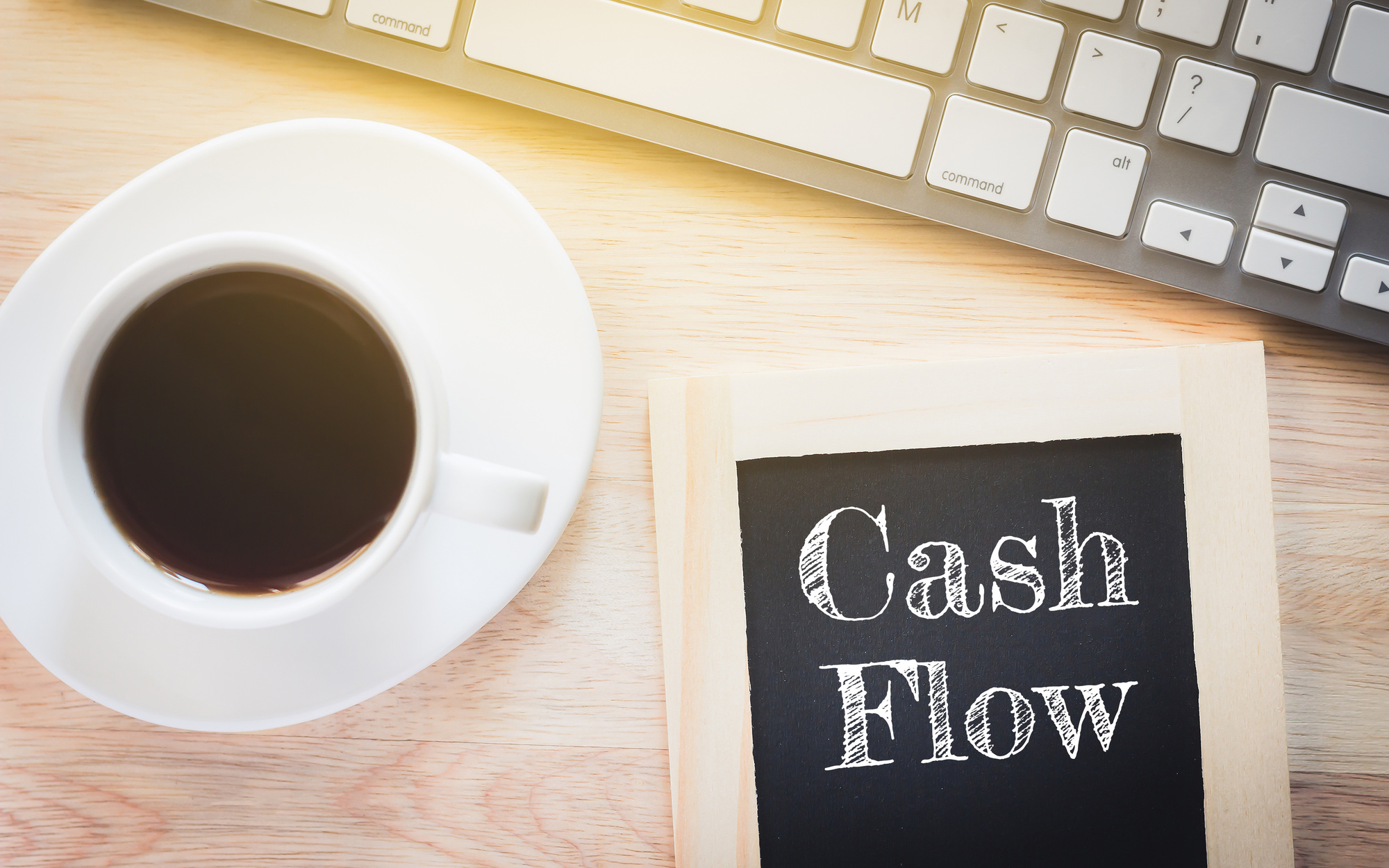
How Can You Identify a Serious Buyer?

No one wants to waste their time and energy trying to sell their business to someone who isn’t actually planning to buy. That’s why it’s so important for you and your business broker or M&A advisor to focus on the most qualified and serious buyers. But how can you really make these kinds of assessments about a buyer’s viability until they sign on the dotted line? Let’s take a look at some signs that will help you figure out your buyer well in advance.
Do they have a history of ownership?
When someone has owned a business in the past, they have a firm understanding of what is involved. As a result, they are more likely to be a serious buyer. It also means they are more likely to move forward. You will also find that they have the ability to make a substantial down payment and financing options. While they might want you to help them with financing, you should still be looking to ensure they will put their own capital at risk as well.
Are they seeking information about your cash flow?
If a buyer is serious, it goes without saying that they will want to make sure the business is profitable. They should be asking a lot of questions about not only your cash flow, but also your inventory. If you have unusable inventory this could be of concern to a buyer. Be sure to disclose this information upfront, as it will likely be discovered in the due diligence process regardless.
Are they asking about the health of your staff?
Any real buyer would want a dedicated and reliable staff. If your buyer is asking about salaries, it is a good sign that they are serious. After all, if you’re only paying minimum wage, chances are that your staff will not have a lot of staying power. These days, many companies are suffering due to staffing issues, and it’s something that should be front and center in any serious buyer’s mind.
Do they have an interest in the industry?
If your prospective buyer is asking questions about the industry, that is another good sign. After all, who would really want to buy a business without detailed knowledge about the industry they are about to enter? Along the same lines, if you know your buyer has experience in a given industry, it means they are more likely to go through with a purchase. If they lack experience in your industry, do they at least seem passionate about the industry? If they seem like they are not asking probing questions, this might mean they are wasting your time.
Are they asking about capital expenditures?
Your prospective buyer will want to know how money is being spent. You can expect them to make sure that major expenses have already been paid for as they will want to make sure they won’t be caught off guard by large pending purchases.
Do you have professional assistance?
The bottom line is that the more in-depth questions a person is asking, the more serious they are likely to be. Your business broker’s job is to screen prospective buyers. Years of experience doing so helps them know the warning signs that pop up when buyers profess to be interested, but are not likely to go through with the sale.
When you are trying to sell your business, it is critical that you focus your time wisely. Your brokerage professional will help ensure that you do not waste time working with people who are just kicking the tires.
Copyright: Business Brokerage Press, Inc.
The post How Can You Identify a Serious Buyer? appeared first on Deal Studio – Automate, accelerate and elevate your deal making.

What Are the Different Business Valuation Methods?
The more than 33 million American small businesses stand as a testament to the entrepreneurial spirit in the national character. This spirit is often seen most clearly in urban areas. With higher population concentration, you get more people looking to start businesses.
Yet, even die-hard entrepreneurs eventually reach a point where they want to do something other than running the businesses they started. With 60-hour weeks a norm for many business owners, it’s hard to blame them.
If you sell, you’ll need a business valuation. Let’s look at some of the common business valuation methods.
Business Valuation Uses
The most obvious reason that someone gets a business valuation is for the purpose of getting a target price range for when they sell the business. That is not, however, the only reason for getting a valuation. Other common reasons include:
- Tax purposes
- Divorces
- Mergers
A business owner might even want one as a sanity check before they take out a major loan.
Business Valuation Basic Procedure
Before agreeing to a valuation, it’s helpful if you understand the function of and procedure for a business valuation. The main function of valuations are for the seller or a buyer to get at least a semi-objective sense of the raw value of a given business.
The procedure for a valuation is relatively straightforward. It has five general steps.
1. Scope Determination
The scope determination step is mostly about getting clear on what exactly the valuation company is there to set a value for. For example, are they doing a valuation for the whole business, a subsidiary, or something else?
As a general rule, this also involves assigning a value date. Since values can change over time, the company must pin the value to a specific time in the past.
2. Producing Documents
The next major step in the process is for the business to produce all the relevant documents. The valuation service will provide specifics about what documents it requires, although those may vary based on the types of business involved.
3. Analysis
The valuation service will then conduct an initial analysis using one of the common valuation methods. See below for more about methods.
4. Management Discussion
Following the initial analysis, the valuation service may request a follow-up discussion with management. These discussions usually seek additional clarification or information that the service couldn’t glean from the documentation.
5. Final Report
Following the management discussion, if it happens at all, the valuation service will then issue a final report. This report will contain the business’s value based on the service’s analysis.
The speed of this process can vary tremendously based on factors like business size, industry, and exactly how complex your business finances are at the time of the valuation.
Now, let’s look at some specific valuation methods.
Book Value
If there is a quick and dirty version of business valuation methods, the book value method is it. This approach starts by looking at all of the assets that are on your business balance sheet. Then they add up the total value of those assets.
Next, they look at all the liabilities on your balance sheets. Then, big shocker, they add up the total value of those.
Finally, they subtract the sum of the liabilities from the total asset value. Whatever is left is the business’s value.
Given the ease of manipulating asset and liability numbers on a balance sheet, this method isn’t a particularly reliable one. It’s best used as a ballpark figure.
Liquidation Value
The liquidation value method shares some features with book value method, in that both deal with assets and liabilities. The liquidation valuation makes a calculation about what would remain if you sell off all of the business assets and settle up for all of the liabilities. The business value is whatever is left over.
Discounted Cash Flow
The discounted cash flow method is often viewed as one of the better valuation approaches. This approach essentially attempts to project future earnings from a business.
If that sounds like a complicated problem, it is. The valuation company must make a substantial number of informed assumptions about everything from the business itself to economic conditions, social conditions, and even what will happen with the environment.
Given these assumptions and weighing the risks involved with a given industry or a particular kind of business, the valuation service will apply a discount rate to these future earnings. Those calculations, including the discount, let them estimate the current value of the business.
Market Value
The market value method typically takes one of two main forms. In the more basic form, the valuation company finds the stock price at a given time, such as the most recent tax day, and multiplies that price by the total stock shares for the business.
The more complicated market approach seeks to find the business’s relative value. This typically involves an in-depth comparison with a similar business or company. For example, they’d look for a company in the same industry, of about the same size, and ideally providing a very similar set of products or services.
It’s important to understand that all of these approaches have limitations.
Tips
You should discuss the pros and cons of the approach your valuation service will take before you agree. In fact, it’s generally for the best if you get at least two or, even better, three valuations using different valuation methods. If multiple valuations all put the value of your business in the same general area, it’s probably a reasonable price to ask.
Business Valuation Methods and You
When you do finally decide that it’s time to hand up your current entrepreneur’s hat and sell, you need a starting point for your asking price. The business valuation methods above can provide you with that starting point.
Just remember that these valuation methods are, by nature, imperfect. They’re often constrained either by time or by unavoidable assumptions of future conditions.
Fusion Business Services can help you sell your St. Louis business. For more information about what we can do for you, contact Fusion Business Services today.
Read More
Understanding the Discounted Cash Flow Method, and How to Use It
Recent statistics reveal that in 2021, the median sale price for small businesses was up 16% over the previous year. Median cash flow was up, too, by 11%. With a promising market, now is an excellent time to consider selling.
Before you decide if it is the best time to sell, you must determine what your business is worth. To determine business value, you must calculate your discounted cash flow. This is an analysis that investors and buyers will look at when they consider if your business is right for them and if the price is right.
If you are considering selling anytime in the future, keep reading for the full scoop.
What Is Discounted Cash Flow?
It’s a valuation technique. Discounted cash flow uses expected future cash flows along with a discounted rate. It estimates an investment’s present fair value.
This calculation focuses on TVM or the time value of money. TVM is a concept that professionals refer to when they believe that today’s money will be worth more tomorrow. It assumes that the dollars you use today will appreciate by investing today.
For modern finance, this is a pillar idea.
Why it’s Important
This model can estimate an asset’s value. It is a fundamental cash flow analysis technique. Discounted cash flow is both qualitative and quantitative by nature.
With the detailed assumptions from a DCF model, it can forecast future cash flow and potential business growth. Analysts must spend a lot of time with these assumptions, including considering environmental, economic, and social issues which can affect the cash flow in the future.
Estimating a Business Value
A discounted cash flow analysis is an industry-standard and comprehensive way to estimate an investment’s fair value. It helps to determine what a business will be worth.
There is a wide variety of data to consider when calculating discounted cash flow. This includes tax rates, the WACC, and the cost of equity.
WACC
The acronym stands for “weighted average cost of capital.”
It calculates an organization’s cost of capital. You weigh each category of capital proportionally. All sources of capital, which can include bonds, preferred stock, common stock, and other long-term debt, are a part of the WACC calculation.
Free Cash Flow
FCF is critical to the DCF model. It reduces the noise that financial reporting and accounting policies can create. A vital benefit of the discounted cash flow valuation is that this approach does not rely on market wide over or under-valuation.
It is imperative that the data in the discounted cash flow analysis is accurate. Otherwise, it will not be effective for your organization.
How Do You Calculate a Discounted Cash Flow?
It is a progressive and cumulative process because DCF depends on free cash flow. Free cash flow is how much cash a business creates following all cash outflows.
Accounting policies significantly impact financial statements because they include non-cash expenditures. Free cash flow measures profitability.
Here is the formula for finding free cash flow.
Free cash flow equals interest expense plus cash flow from operations, then subtracts tax shield on interest expense, and then subtracts CAPEX (capital expenditures).
Although, there are other ways you can calculate your free cash flow, too. Here are two more formulas.
Free cash flow equals [(1-Tax Rate) x EBIT] plus non-cash expenses, minus liabilities/change in current assets, and then subtract CAPEX.
Free cash flow equals interest expense plus net income, minus tax shield on interest expense plus non-cash expenses, minus liabilities/change in current assets, and then subtract CAPEX.
All these formulas will do the trick. Which one you use should depend on the information you have readily available.
Calculating Discounted Cash Flow
You can use this formula after you determine your free cash flow. Remember, the DCF relies on the discount rate. Here is the basic formula.
Discounted cash flow equals FCF1 divided by (1 plus r)¹, plus FCF2 divided by (1 plus r)², plus FCFn divided by (1 plus r) n.
Here are the different free cash flow figures and how you find them.
- FCF is the free cash flow for any given year
- FCF1 is the free cash flow for year one
- FCF2 is the free cash flow for year two
- FCFn is the free cash flow for each additional year
“N” stands for each additional year. “R” is the discount rate.
Why You Need DCF For Business Value
Discounted cash flow analysis is how you can provide a case for a company or asset’s present value and how much it could make a buyer in the future. You want to tell a story that your company or asset is making a certain amount today but will be much more worthwhile in the future. Investors and buyers want to see proof of business growth.
Projections can only go so far. Five to ten years is a typical timeframe for estimating future value.
The DCF Valuation method is sensitive to assumptions. Any minor tweak can make a tremendous fluctuation.
Get the Best Brokerage Service
If you are unsure about your discounted cash flow analysis, ask a professional to help. Fusion Business Services has been helping organizations for years determine their DCF and their business sales options.
They begin with an in-depth planning session that is totally confidential. If you have something on your mind regarding your business value, the professional at Fusion Business Services has the answers.
Contact Fusion Business Services today to learn more.
Read More
Are You Cut Out to Own a Business?

There are clearly qualities that make a person an ideal candidate to be a business owner. On the other side of the coin, however, it’s clear that owning a business isn’t for everyone. Let’s take a look at some of the unique personality aspects that help motivated individuals identify owning a business as a good fit for them.
You Seek to Guide Your Destiny
A common reason people become business owners is that they want to have more control over their lives. After all, if you’re working for someone else, your fate is never truly in your own hands. You can always be fired or let go. When you are a business owner however, not only do you have control over your job itself and the tasks you accomplish on a daily basis, but you can also determine who you work with and where you work. You also need to have optimism to keep working with the belief that things are moving in a positive direction.
You are Comfortable with Risk
When you take the role of business owner, you invite a certain degree of risk into your life. That means you are responsible for the success of your business, and you will also have a team of people depending on you. That’s why it’s so important to have a clear vision for the business before you take on the responsibility. You are likely to invest a great deal of your own money into the venture. You may even have to put up valuable assets as collateral, such as your house. You may also have to make sacrifices such as taking a reduced income as the business gets off the ground. It’s important for business owners to possess the inner strength to stay motivated and on track to keep the business growing.
You are Motivated
People who make good business owners are typically inspired by the idea of growing their income, and they are willing to put in the work to achieve that goal. The idea of making key decisions to grow their business is something they find exciting. The truth is, the longer you own your business, the more money you will make. Often you will have to exercise patience in order to reap the financial benefits you’re seeking.
You are Collaborative
Not everyone is great at collaboration. As a business owner however, you will need to work well with others for the business to be a success. It’s rare to do everything on your own. That’s why you need to be a good communicator and will need to be talented at managing others. Great business owners are bosses that are disciplined, self-aware and able to operate comfortably with a high degree of vulnerability.
Before you decide to own a business, it makes sense to do some self-reflection to ensure that your personality really does lend itself to being a business owner. If you have questions about what owning a business entails, be sure to discuss this topic with a business broker or M&A advisor.
Copyright: Business Brokerage Press, Inc.
The post Are You Cut Out to Own a Business? appeared first on Deal Studio – Automate, accelerate and elevate your deal making.

Can You Buy a Business Without Collateral?

If you’ve ever gotten any type of substantial loan, chances are that you’re already familiar with the concept of collateral. This is when something of value is pledged as security. As a result, the lender has something of value that they could potentially take if the loan is not repaid. Collateral is designed to protect the lender. Of course, the most common example of collateral is your house when you have a mortgage.
Oftentimes, those looking for a loan to buy a small business wonder if they can do so if they have no collateral. Let’s take a closer look at some of the most popular options in this situation.
The 7(a) Loan Assistance Program
If you’re lacking collateral and looking for a business loan, it’s a good idea to check with the Small Business Administration. The SBA 7(a) loan is one of their most popular programs. While it can be used for establishing or acquiring a new business, it’s also commonly used for long and short-term working capital, refinancing business debt, or the purchase of real estate or equipment.
The SBA guarantees up to 75 percent of the amount of the loan if you can contribute 25 percent of the money. This can be a very good option for buyers who don’t want to contribute collateral. You can even use cash that came as a gift from investors. As a result, this program is frequently used by first time business owners. More information is available here: https://www.sba.gov/funding-programs/loans/7a-loans.
One thing you’ll want to note about the 7(a)-loan program is that the seller will not be able to receive payments for two years. As a result, the seller may request or require some other kind of incentive.
Seller Financing Options
Seller Financing happens more often than you would think and is another great way of buying a business without collateral. Most sellers are motivated and will agree to help with financing. Some buyers have even combined SBA loan 7(a) program with seller financing for maximum results.
If you are looking for creative financing options, be sure to talk to your business broker or M&A advisor about the specifics of your situation. You can also look to S.C.O.R.E to receive information about best practices for proceeding.
If you’re looking to buy a business and have no collateral, just remember that people use ingenuity to buy businesses every day. You just need to set your goal and be determined to reach it.
Copyright: Business Brokerage Press, Inc.
The post Can You Buy a Business Without Collateral? appeared first on Deal Studio – Automate, accelerate and elevate your deal making.
